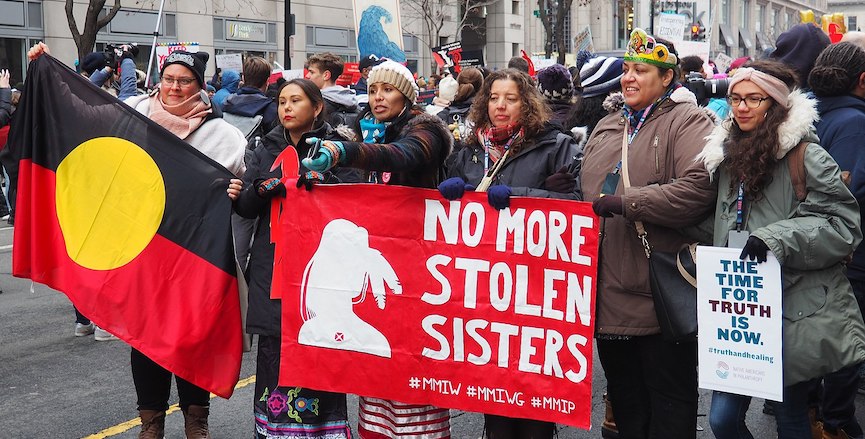Do not be overly deferential to definitions. Humans used words knowing what they signified, for millennia — nay, eons — before words had definitions. Definitions and dictionaries came late, post-writing, post-print. They were an attempt by smarty-pants like Dr. Johnson in 1755, to show how bright they were. They were never meant to tell people what they really meant to say.
This is so about whether the murders of Indigenous women should be “defined” as genocide. The term is always in flux. It was coined in the early 1940s, by refugee Jewish lawyer Rafael Lemkin, for something that had been around forever. Lemkin took a shot, as have others, often lawyers.
The law always pretends to more precision than it has. Read the “supplementary” section in last week’s report and you’ll see lots of hedging based on scattered, conflicting legal judgments.
The tentativeness is also shown by the term, “amounts to.” The killings “amount to” an ongoing genocide. This doesn’t diminish the argument. Language is always inconclusive, including legal language. That’s why lawyers make arguments and judges choose variously among them.
Much depends on where people are in their own process of understanding. I returned from revolutionary Mozambique in the late ’70s imbued with the spirit of the place, went into the Children’s Book Centre, and asked if they had any books about “kids in struggle” that I could send there. The centre’s director didn’t roll her eyes though she could’ve. She kind-heartedly helped out.
I think where we are as a society, generally, in terms of understanding Indigenous issues, is an acceptance that severe injustices were and continue to be done, which may amount to genocide, often through cultural means like residential schools, language prohibitions, the legal system.
I think this counts as a remarkable advance from 50 or 60 years ago, when “minority grievances” might include Jews, Blacks, Chinese-Canadians, even Quebecois, yet Indigenous peoples were rarely mentioned. It’s not unanimous but there are enough signs, like ubiquitous land rights acknowledgments, to know the point has penetrated even if action to rectify it has lagged behind.
Where many haven’t arrived, I’d say, is including atrocities like Robert Pickton’s as part of the historic Canadian genocide in which we’re all, to some degree, implicated. Some are there, others aren’t. This matters if admitting that culpability becomes required as part of making the changes called for in last week’s report.
I understand Tanya Talaga’s heartfelt annoyance here over why many aren’t willing to use the term. But I think it’s unfortunate if the demand becomes an obstacle to gathering support for concrete actions.
Serious politics is, as I understand it, about assembling enough people behind transformative actions, to implement them. Motives for that support will vary among constituencies, and in the end you take it as you find it. I get the sense that Justin Trudeau not so much understands this as embodies it.
As an individual, he seems to empathize, and even accept the genocide definition. As a leader about to enter an election, which he’s fumbled so far, he knows that many people/voters aren’t at that point. I think this could account for the irritating vacillation he’s shown about using the term.
An undergrad I know, who’s been preoccupied with genocides since high school, says arguing over definitions is a red herring. Defining the current situation as a genocide — which he does — only matters to the extent it ends it. What if Hitler had — he asks — under pressure, acknowledged his policy as genocide, then gone ahead anyway? It wouldn’t have mattered.
My late teacher, Abraham Joshua Heschel, who escaped the Holocaust and worked with the U.S. civil rights movement, suggested we may not all be guilty, but we are all responsible. Perhaps that cuts through the verbal thicket — or not.
Actually, the undergrad is my kid, Gideon. I normally don’t name him for reasons of (anti)nepotism. But he and some of his peers have created a journal called the Contemporary Review of Genocides and Political Violence. They feel a stake in the topic and seem determined not to let their elders petrify it through inflexible definitions. They too will participate in the evolution of the term. I think Lemkin would’ve approved.
Rick Salutin is a Canadian novelist, playwright and critic. This article originally appeared in the Toronto Star.
Image: slowking4/Wikimedia Commons



